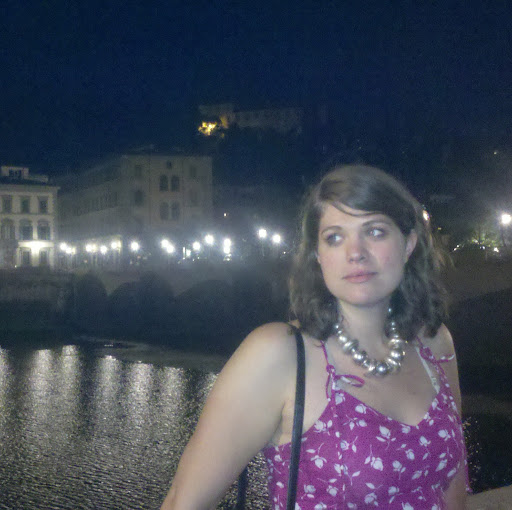Julie A Brigham
age ~64
from Charlotte, NC
- Also known as:
-
- Julie Ann Brigham
- Julie S Brigham
- Julie A Mcdaniel
- Julie Brigham Mcdaniel
- Julian H Mcdaniel
- Jeff S Brigham
- Jeffrey S Brigham
Julie Brigham Phones & Addresses
- Charlotte, NC
- Bishop, GA
- Lafayette, MN
- 260 Russell St, Winder, GA 30680 • 7703073753
- Bottineau, ND
- Bethlehem, GA
- Orlando, FL
- Rock Hill, SC
- Lawrenceville, GA
- Atlanta, GA
Resumes

Julie Brigham
view sourceLocation:
260 Russell Rd, Clarkston, GA
Industry:
Consumer Services
Work:
The Athlete's Foot 1988 - 1990
Assistant Buyer
Assistant Buyer
Education:
The University of Georgia 1979 - 1983
Bachelors, Bachelor of Science, Economics
Bachelors, Bachelor of Science, Economics

Assistant Buyer Kid's Athletic And Casual
view sourceLocation:
260 Russell Rd, Clarkston, GA
Industry:
Retail
Work:
Rack Room Shoes
Assistant Buyer Kid's Athletic and Casual
Off Broadway Shoes
Assistant Buyer Women's Athletic Shoes
New Balance Buckhead Jun 2011 - Feb 2012
Apparel Buyer and Merchandiser, Sales
The Athlete's Foot 1987 - 1990
Apparel Buyer - Women's Sportswear
Richs Department Store 1986 - 1987
Associate Buyer - Petite Dresses
Assistant Buyer Kid's Athletic and Casual
Off Broadway Shoes
Assistant Buyer Women's Athletic Shoes
New Balance Buckhead Jun 2011 - Feb 2012
Apparel Buyer and Merchandiser, Sales
The Athlete's Foot 1987 - 1990
Apparel Buyer - Women's Sportswear
Richs Department Store 1986 - 1987
Associate Buyer - Petite Dresses
Education:
The University of Georgia Jan 1, 1979 - 1983
Skills:
Merchandising
Apparel
Retail
Sales
Forecasting
Strategic Planning
Visual Merchandising
Inventory Management
Marketing
Footwear
Trend Analysis
Retail Buying
Apparel
Retail
Sales
Forecasting
Strategic Planning
Visual Merchandising
Inventory Management
Marketing
Footwear
Trend Analysis
Retail Buying
Languages:
English

Julie Brigham
view source
Julie Brigham
view sourceIndustry:
Real Estate

Julie Brigham
view source
Julie Brigham
view source
Julie Brigham
view source
Julie Brigham
view sourceLocation:
United States

Julie Brigham Palmer
view source
Julie Mead Brigham
view source
Julie Brigham
view source
Julie Brigham
view source
Julie Brigham
view source
Julie Brigham
view source
Julie Brigham
view source
Julie Sitzman Brigham
view sourceYoutube
Myspace

Julie Brigham Julie Hess ...
view sourceJulie Brigham Julie Hess (Julie Brigham ( Julie Hess))'s profile on Myspace, the leading social entertainment destination powered by the passion of our fans.
News

Obama makes risky bid to increase science spending
view source- Wed really like a heavy icebreaker so that no matter what the season, even in midwinter, we have the capability to go where we need to go, says Julie Brigham-Grette, a palaeoclimatologist at the University of Massachusetts in Amherst who chairs a national polar research board.
- Date: Feb 09, 2016
- Category: Sci/Tech
- Source: Google

Arctic could be ice-free in future - Zee News
view source- Results of analyses by an international team led by Julie Brigham-Grette of the University of Massachusetts Amherst provides "an exceptional window into environmental dynamics" and have "major implications for understanding how the Arctic transitioned from a forested landscape without ic
- Date: May 11, 2013
- Category: Sci/Tech
- Source: Google

Study: Arctic Had 'Exotic Trees,' Forests Millions of Years Ago
view source- According to lead researcher Julie Brigham-Grette, the trees likely grew there between 2.2 and 3.6 million years ago, during an era known as the Pliocene. The Arctic was approximately 14.4 degrees warmer than it is now, with summer temperatures reaching the low 60s. At the time, carbon levels in the
- Date: May 10, 2013
- Category: Sci/Tech
- Source: Google

Ice-Free Arctic in Pliocene, Last Time CO2 Levels above 400 PPM
view source- This lake is special because glaciers did not cover it and shield it from sediment, a process that often removes a lot of the material geologists look for in a sediment core, said Julie Brigham-Grette, the study's lead author and a quaternary geologist at the University of Massachusetts, Amherst.
- Date: May 10, 2013
- Category: Sci/Tech
- Source: Google

Arctic Warmer 2 to 3.5 Million Years Ago: Region Is Extremely Sensitive to ...
view source- major findings is that the Arctic was very warm in the middle Pliocene and Early Pleistocene-roughly 3.6 to 2.2 million years ago-when others have suggested atmospheric carbon dioxide was not much higher than levels we see today," Julie Brigham-Grette, of the University of Massachusetts Amherst said.
- Date: May 10, 2013
- Category: Sci/Tech
- Source: Google

Ice-Free Arctic May be Nearer Than We Thought: Crater Reveals Warmer World
view source- "There was probably no sea ice, and the whole Arctic was pretty well forested, so it was a very different world," said Julie Brigham-Grette, one of the researchers, in an interview with LiveScience. "So, how did we go from that to the tundra that we have today, and what does this tell us about the f
- Date: May 10, 2013
- Category: Sci/Tech
- Source: Google

Ice-Free Arctic May Be Near, Study Suggests
view source- The researchers found that during this time, the Arctic was very warm, with summer temperatures about 14 degrees Fahrenheit (8 degrees Celsius) warmer than they are in the region today, said Julie Brigham-Grette, a professor in the department of geosciences at the University of Massachusetts
- Date: May 09, 2013
- Category: Sci/Tech
- Source: Google
Classmates

Julie Spencer (Brigham)
view sourceSchools:
Cadillac High School Cadillac MI 1975-1979
Community:
Adam Northrup

Julie Brigham
view sourceSchools:
Irish Elementary School Ft. Collins CO 1971-1978, Boltz Junior High School Ft. Collins CO 1979-1981
Community:
Nancy Dearing

Julie Brigham Dungan | Go...
view source
Boltz Junior High School,...
view sourceGraduates:
Julie Brigham (1979-1981),
Robert Augat (1980-1982),
Jeannette McCalmont (1999-2002),
Mandy Olson (1992-1995)
Robert Augat (1980-1982),
Jeannette McCalmont (1999-2002),
Mandy Olson (1992-1995)

Dale Ickes Junior High Sc...
view sourceGraduates:
Julie Brigham (1973-1975),
Cynthia Lauinger (1985-1987),
Robyn Litzenberg (1972-1974),
Michael Stone (1963-1965)
Cynthia Lauinger (1985-1987),
Robyn Litzenberg (1972-1974),
Michael Stone (1963-1965)

Governor Thomas Johnson H...
view sourceGraduates:
Julie Brigham Dungan (1991-1995),
Dwight Smith (1966-1970),
Christy LaBarbera (1981-1985),
Dave Cannon (1986-1990)
Dwight Smith (1966-1970),
Christy LaBarbera (1981-1985),
Dave Cannon (1986-1990)
Googleplus

Julie Brigham

Julie Brigham

Julie Brigham

Julie Brigham

Julie Brigham
Get Report for Julie A Brigham from Charlotte, NC, age ~64







